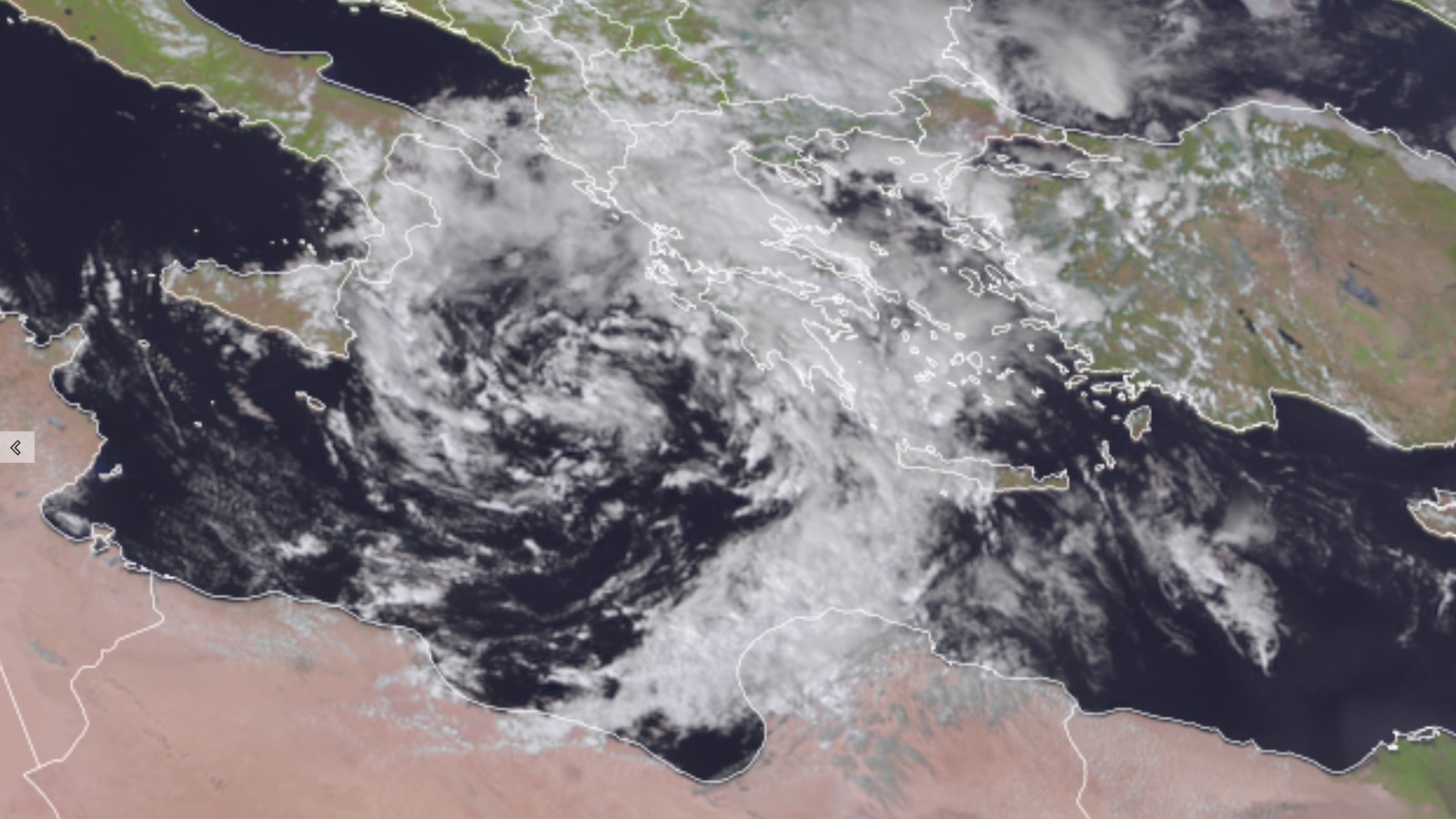A summer in Greece marked by deadly convulsions of wildfire has plunged into an intensely wet week that has already dumped more than 20 inches (500 millimeters) of rain on parts of central Greece. The rains are being driven by an upper-level low pressure system, dubbed Daniel, that may transition into a “medicane,” or Mediterranean tropical-like cyclone. Medicanes are cyclones that develop over the Mediterranean Sea during its warmer months, typically late summer and autumn. They often manage to take on some of the hallmarks of a tropical cyclone despite the Mediterranean’s small size and mid-latitude location.
An intensifying surface low west of Greece, over the Ionian Sea, is pulling strong, moist low-level winds atop the Aegean Sea and into higher terrain across the central region of Thessaly, where the heaviest rains are expected.
At upper levels, the jet stream over the continent is contorted into an omega block (see embedded post below). Cool, wet cut-off lows over southwest and southeast Europe will flank a strong upper high expected to deliver record or near-record September heat to northern Europe. Such persistent upper-level patterns driving weather extremes could become more frequent in Northern Hemisphere summertime as a result of human-produced climate change, according to research by Michael Mann (University of Pennsylvania) and colleagues.
Rains from the southwestern low brought flash flooding to parts of Spain on Sunday and Monday, with at least three deaths reported in the region around Toledo, according to Reuters. As the week unfolds, this upper low will likely become entangled with the remnants of Hurricane Franklin. Meanwhile, major flash flooding was reported with the southeastern upper low in the Black Sea cities of Samsun, Turkey, and Tsarevo, Bulgaria.
Even as central Greece braces for potentially epic rains, far-northeast Greece has been grappling over the past three weeks with a mammoth wildfire in and near the nation’s Dadia National Park.
The fire has consumed more than 200,000 acres, making it the largest in any European Union country in records dating back to 2000, according to the EU’s Copernicus Emergency Management Service. The Associated Press reported that least 21 people have been killed, including 18 in a single structure. The people were believed to have been migrants who had crossed the Turkish border.
The August fire follows months of recurrent record heat and drought across Southern Europe, including a number of all-time record highs. Raging wildfires forced some 20,000 people from the much-visited Greek island of Rhodes in July in the nation’s largest evacuation on record. Greece’s world-famous Acropolis restricted its visiting hours during the peak of the July heat wave after multiple reports of fainting and dehydration among tourists there.
The World Weather Attribution project found that “maximum heat like in July 2023 would have been virtually impossible to occur in the US/Mexico region and Southern Europe if humans had not warmed the planet by burning fossil fuels.” Comparable heat waves can now be expected about once every 10 years in Southern Europe, according to the project. As with the similar dry-summer climate of California, summers are naturally a fire-prone time in Southern Europe, and hotter temperatures will only parch the landscape even further. The Intergovernmental Panel on Climate Change found in its Sixth Assessment Report that the frequency and intensity of hot extremes have already increased over Europe and will continue to do so over the next several decades; the amount of warming later this century will be more dependent on how quickly greenhouse gas emissions can be reduced.
See our upcoming national and global round-up posts next week for a comprehensive report on the many all-time heat records set this summer.
Website visitors can comment on “Eye on the Storm” posts (see comments policy below). Sign up to receive notices of new postings here.
Source link


